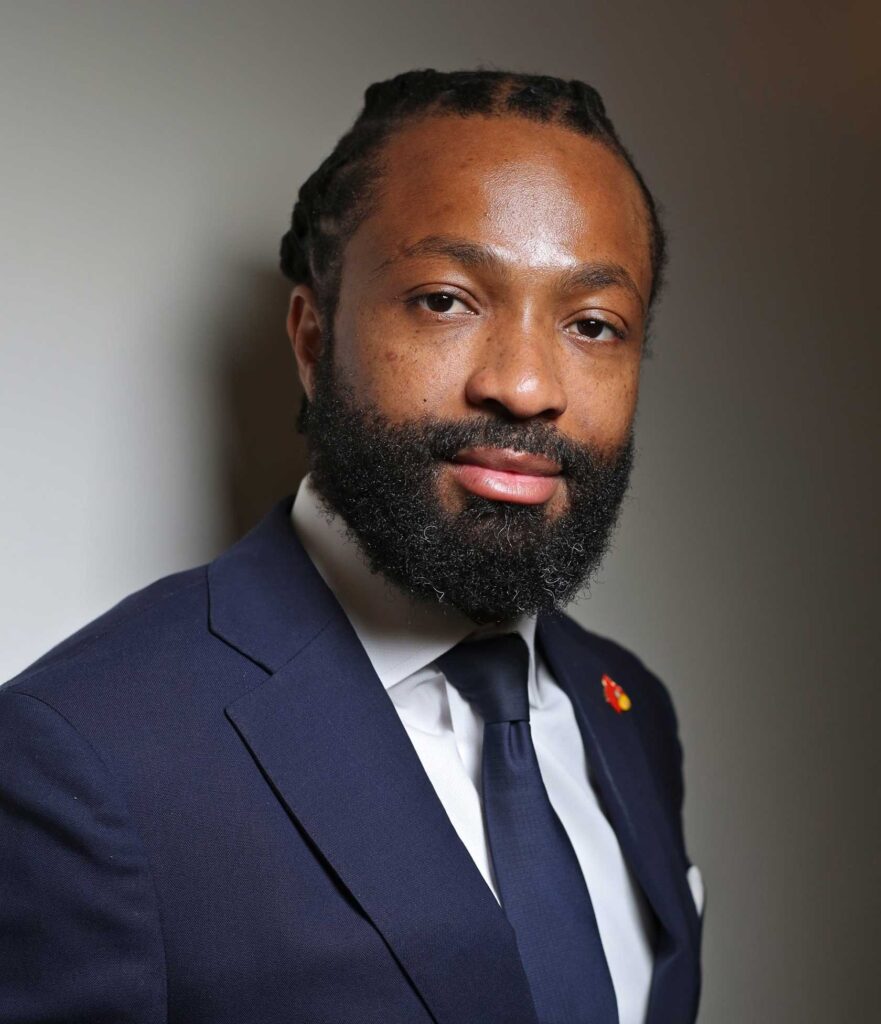
Boston’s police oversight office will have its second executive director in its three years of operations as Mayor Michelle Wu appointed Evandro Carvalho to head the bureau that reviews allegations of police misconduct.
Speaking to a reporter after he assumed leadership of the Office of Police Accountability and Transparency last week, Carvalho said he is excited to begin his new role in the beefed-up agency. The politically sensitive work of reviewing police conduct in Boston has a fraught history, with extensive criticism over the years of toothless oversight and disappointing results.
Carvalho, an attorney and former Dorchester state representative from Boston’s Cape Verdean community, said he was optimistic about the job.
“I’m very encouraged with where we are with police reform,” he said. “This is a fully staffed office. I’m very encouraged by the systems in place.”
Carvalho, a 2008 Howard University School of Law graduate, worked as an assistant district attorney in Suffolk County before serving two terms in the legislature.
On Beacon Hill, Carvalho represented a district where friction between Cape Verdean youth and police often ran high. During his tenure in the State House, he pushed for criminal justice reform measures at the state level.
He ran unsuccessful campaigns for Suffolk County district attorney and a district seat on the Boston City Council. Carvalho subsequently served as executive director of the Boston Human Rights Commission and as general counsel to the Massachusetts Supplier Diversity Office.
Carvalho’s appointment comes nine months after the inaugural executive director, Stephanie Everett, was appointed register of the Suffolk County Probate and Family Court.
OPAT was founded in 2021 as a means of ensuring civilian complaints against police are investigated thoroughly and fairly. Prior to its founding, the city maintained a Community Ombudsman Oversight Panel with limited powers to review civilian complaints that were investigated by the Boston Police Department’s Internal Affairs Division (IAD). That body suffered from chronic understaffing, reviewed few cases and for several years produced no reports.
OPAT, which now has a staff of eight, oversees the work of two other bodies — the city’s Civilian Review Board — which reviews civilian complaints, and the Internal Affairs Oversight Panel, which reviews IAD investigations. OPAT has the authority to review evidence from the police and initiate investigations.
Of the 148 complaints listed on OPAT’s online data dashboard, just six have been sustained. In those six cases, OPAT recommended suspensions in three cases, termination in one, trainings in three cases and oral reprimands in two. The agency’s website lists no information on what disciplinary actions, if any, police have taken in those cases. The police commissioner, Michael Cox, has the authority to overturn decisions by OPAT.
Activists who helped the city develop the structure for civilian oversight of police misconduct cases say OPAT has the staffing and organizational support necessary to do its work. The agency could hear more cases if more people knew about it, said NAACP Boston Branch President Tanisha Sullivan, who served on the Police Reform Task Force that recommended the formation of OPAT in 2021.
“One of the challenges and warnings that we as a task force consistently heard from other cities — from offices the same as OPAT — is that it’s critically important to do community education about what the Civilian Review Board actually does and what the Internal Affairs Oversight Panel actually does,” she said. “We heard again and again that that was a challenge in other cities. I think that this is a challenge that Boston is facing as well.”
Another member of the Police Reform Task Force, Jamarhl Crawford, said he thinks the OPAT and the two agencies it manages hasn’t yet functioned up to its full potential.
“I’m taking a cautiously optimistic, wait-and-see approach,” he said. “I hope this body realizes its powers and takes advantage of them.”
While he says he hasn’t reviewed the data on cases OPAT has worked on, Carvalho acknowledged the agency is not functioning optimally.
“We have to kick it up a notch,” he said. “People have to know we’re here, what our expectations are and what our limitations are.”
Carvalho says he’s met with community members and with Stephanie Everett, the previous director.
“I’m very encouraged that we’re heading in the right direction,” he said.
To outside observers, it’s not always clear in which direction OPAT is heading. Defense attorney Carlton Williams said he questions the effectiveness of the OPAT process. During the Boston protests following the police killing of George Floyd, Williams said he and six other attorneys who were on the scene watched as an officer tackled a protester and began beating him.
As the attorneys observed from a short distance, Williams says, the officer kneeled and directed pepper spray toward their faces, hitting Williams and the others in the eyes.
“It was an assault,” he said.
Williams filed a complaint with IAD, but there appeared to be no investigation.
“The Boston Police Department didn’t interview anyone,” he said. “They said they couldn’t find the officer, despite photos and video showing his face.”
After OPAT opened in 2021, Williams says, he requested the office conduct an investigation.
“OPAT sent a letter to Internal Affairs recommending IA do more investigation,” he said. “I haven’t heard anything from them since.”







